AACN honors UMMC School of Nursing for school-based clinic partnerships
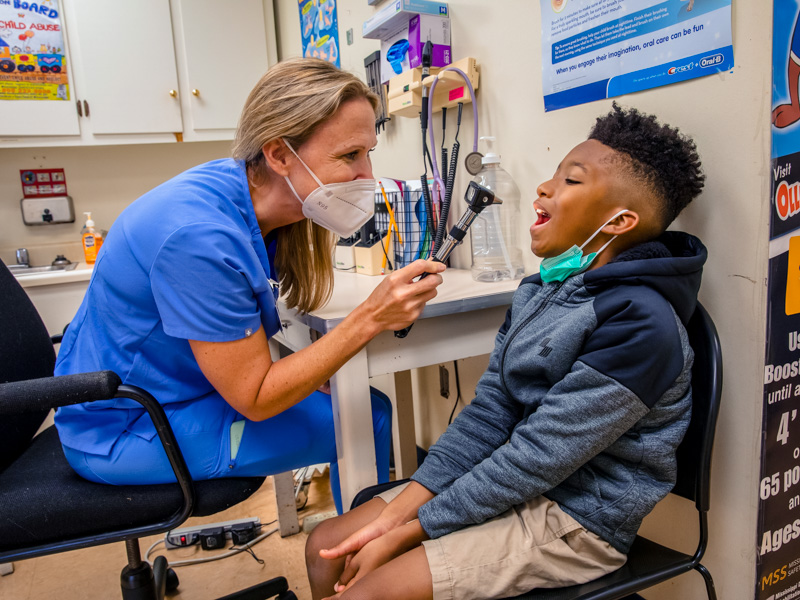
Partnerships for school-based clinics in Jackson and Rolling Fork earned the School of Nursing at the University of Mississippi Medical Center an Exemplary Academic-Practice Partnership Award from the American Association of Colleges of Nursing.
UMMC SON CHAMP, an acronym for Underserved Mississippi Communities: School of Nursing Coordinated Healthcare through an Authentic Model of Partnership, received the honor at the AACN’s Academic Nursing Leadership Conference Oct. 30 in Washington, D.C.
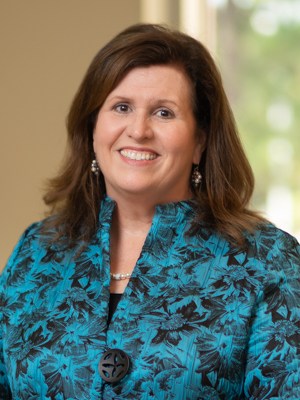
“Receiving this award from the AACN is an honor not only for the School of Nursing and UMMC but for the state of Mississippi, Jackson Public Schools and the South Delta School District,” said Dr. Julie Sanford, dean of the School of Nursing. “We believe that healthier students learn better. Providing this care is what nursing is all about.”
Dr. Anne Norwood, associate dean for practice and partnerships in the School of Nursing, said the clinics, located at Johnson and Galloway elementaries and Lanier High in Jackson’s Georgetown neighborhood, South Delta Middle School in Anguilla, and South Delta High and Ripley-Blackwell Head Start Center in Rolling Fork, are more than convenient locations for student health care.
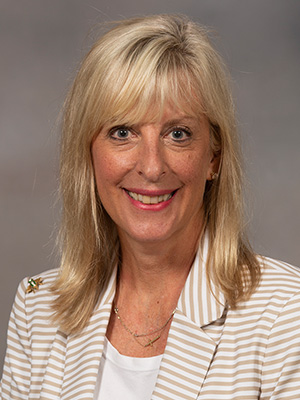
“Our clinics are where nurses care for children holistically,” she said. “We offer health care when they’re sick and wellness visits, but we can also help them have access to nutritious food. We’re there if they need someone to talk with.”
To date, more than 6,000 children have been treated in the clinics. Earlier this year, the School of Nursing and Lanier High were honored for their partnership with Mississippi Governor’s Awards.
“To have a clinic right here in the school means a lot, not only for our scholars but for their families,” said Alvin Thomas, board chairman of the Lanier High Alumni Association, which has helped in funding the clinic at Lanier High. “When we have activities going on, we can always count on the clinic to participate. They’ve truly been a blessing, not only for our scholars but for the entire community.”
The School of Nursing participates in Mississippi Food Network food distributions and has collected and distributed face masks, gloves and hand sanitizer to combat the spread of COVID-19.
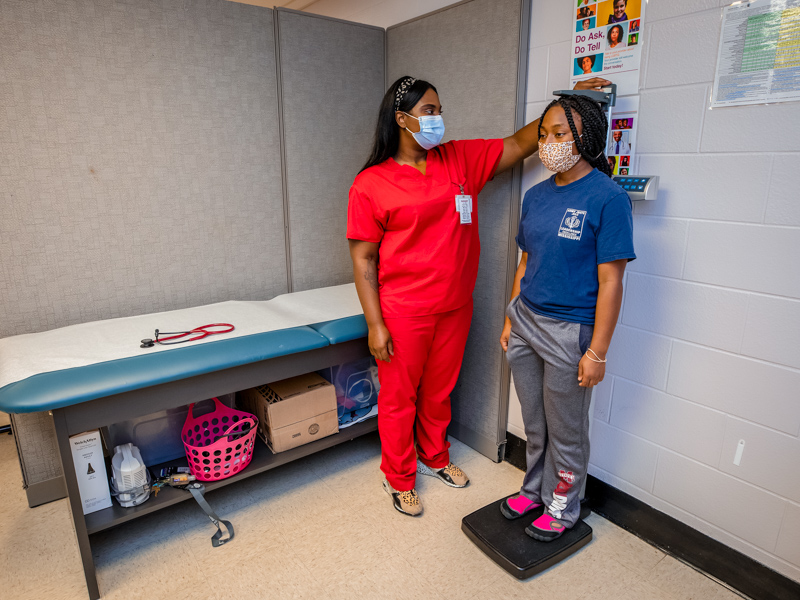
Jamaya Barton, a senior at Lanier, says she trusts the care and the caregivers of the Lanier clinic. “I’ve been coming to this clinic since the ninth grade,” she said. “I’ve been seeing the same people. Basically, you have to have trust, and I trust them.”
Jada Ards, a sophomore at Lanier, does, too. She’s been getting care at the UMMC clinics since she was a student at Johnson Elementary.
“Having the clinic here means a lot because we don’t have to get dismissals or get checked out,” she said. “That means we don’t have to miss classes, schoolwork or any other important things in school.”
Jada’s mother, Demetric Collins, said the clinic has helped her family and others “tremendously.”
“With Jada being seen in the clinic and going back to class, she’s not missing schoolwork by having to leave school that day,” she said. “Some of our parents don’t have the means or the transportation to get their children to the doctor. If we did not have that clinic, I think it would be terrible. It benefits our neighborhood, our community, our scholars. It greatly benefits all of us, having the clinic here.”
Nurse practitioner Ladaryl Watkins cares for students at the Galloway and Lanier clinics. It’s a job she prepared for as a nursing student at UMMC.
"When I did my rotations at the clinics as an undergrad, I realized that I loved it,” she said. “I love being in the community of these students, which is what I call their schools. It is very welcoming. I feel like we are able to make an impact.”
When schools shut down for in-person classes during the COVID-19, Watkins said she could see the effect of the clinic’s absence.
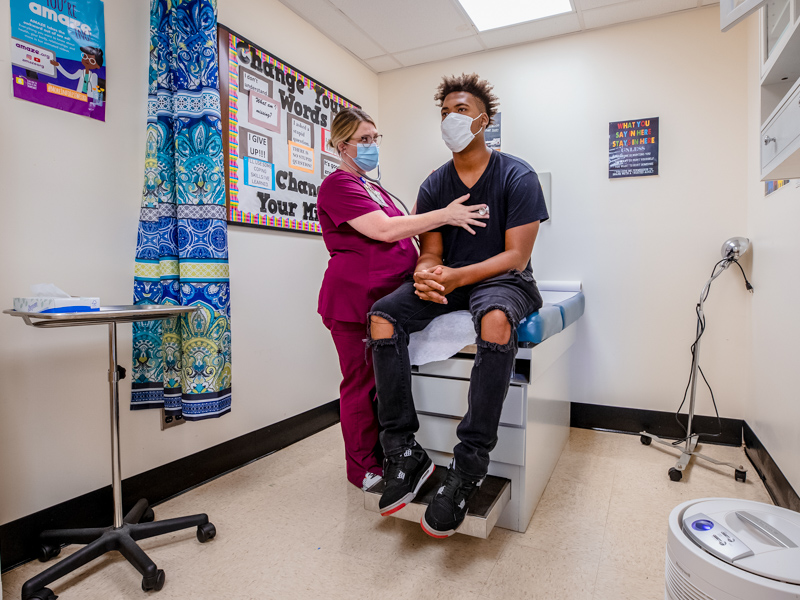
“During the pandemic when the school shut down, students lost access to clinical services,” she said. “We have telehealth but were struggling to have WIFI hotspots for everyone and camera access, which are systemic problems in Mississippi in general. They lost that part of their community, when they could go to school and get a hot meal or the teachers and nurses could take a look at them and say, ‘I think you’re going through something. Can we talk about it?’ They completely lost contact with those services that you don’t think of being at a normal clinic setting.”
Watkins said meeting the students in their comfort zone – school – nurtures openness.
“Students are more open to talking with us about their problems when we’re in the school system because this is their community, and this is where they feel the most comfortable,” she said. “They’re able to be more open about things that are bothering them without going into a doctor’s office.”
Lanier Principal Valerie Bradley said the clinic helps meet the needs of students physically and mentally.
“Instead of getting dismissals, students can come right around the corner and get everything that they need," Bradley said. “All parents have to do is fill out a consent form and the clinic takes care of the rest. I don’t know what we would do without them. I don’t know how any school makes it without a school clinic.”
Watkins said the clinics benefit not only students and their families but the community at large.
“You have healthier people. You have people who can go to work and contribute to society,” Watkins said. “Strong communities begin with strong, healthy individuals.”


